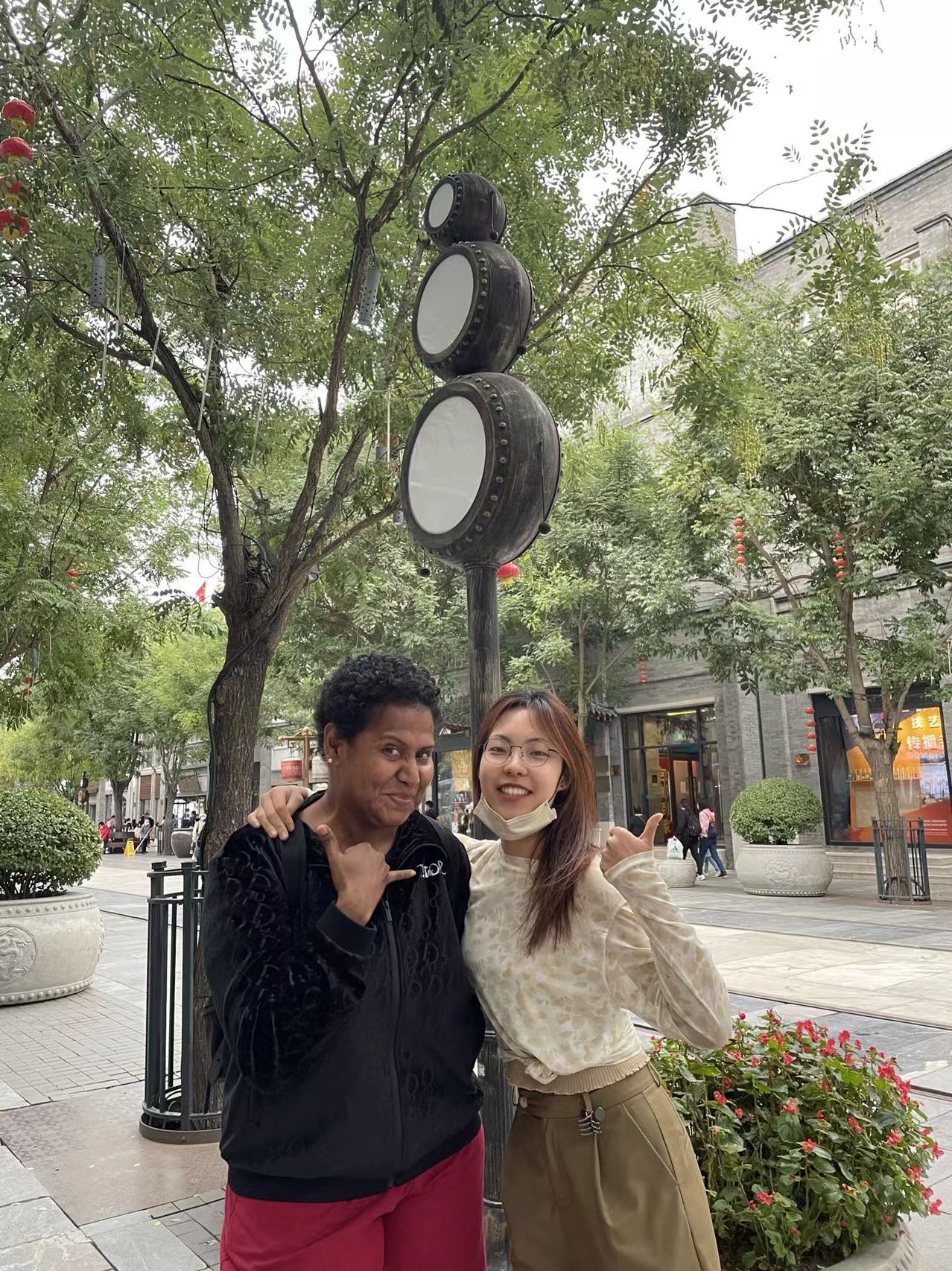A senior Fijian journalist, Maria Vula is the first student from her home country to be enrolled in the Global Business Journalism master's program of the School of Journalism and Communication at Tsinghua University. Currently in her final year, this Managing Business Editor of the Fiji Sun, the biggest daily newspaper in the Pacific Islands, is busy not only finishing off her studies, but also exploring China and Chinese culture and understanding the world’s second-largest economy.

As China gets ready to host the 20th National Congress of the Communist Party of China (CPC), Maria shared her Tsinghua experience so far and her hopes and expectations for China.
Read her full Q&A here:
Q: How would you describe your experience as a Tsinghua student?
Maria: Tsinghua University is living up to its reputation as a top university bridging China and the world. Over the past 110 years, Tsinghua has taken root in China, establishing fine traditions of patriotism, dedication and the pursuit of excellence, and nurturing generations of outstanding talents. I feel ecstatic to be part of this ever-evolving tradition. Tsinghua campus life is amazing and gratifying as it presents many opportunities for students not only in education, but also in getting involved in many diverse events and activities. I am fortunate to be learning from exceptional professors who inspire me and other students to embrace excellence in every field whilst studying at Tsinghua.

Q: What are some of the biggest changes you have noticed in Tsinghua?
Maria: With the onset of the COVID-19 pandemic, in the last two years, education pretty much shifted from traditional classroom teaching to online education all over the world. During my first semester in the fall of 2021, and my second semester this year from February to June, I studied online and the pandemic presented an opportunity to use new technologies. During my last six months on campus, I noticed that there are more international students now living on campus, which is good.
Q: How would you see the disciplinary development of your field during the past five years?
Maria: The field of journalism and communication has been undergoing a rapid transformation. I believe that the Tsinghua School of Journalism and Communication is constructively playing a critical role in China's academic, political, and media circles, because of the amazing efforts put in by the top-level TSJC professors.

Q: What are your expectations for Tsinghua in the next five years?
Maria: I am looking forward to seeing Tsinghua University continuously grow into a more world-class university. Tsinghua will be at the forefront of educational innovation and research and in areas with long-term strategic significance. I expect to see the University give more emphasis on sports activities for its strong sporting culture and tradition.
Q: In your opinion, what is the significance of the National Congress of the Communist Party of China?
Maria: It is the most important five-yearly Communist Party of China (CPC) Congress that sets out targets, tasks and major policies for the cause of the Party and the future of China. The representatives of this Congress are chosen from all walks of life in China, including diverse sectors, private and public institutions.
Q: What will you be watching for during this year's National Congress?
Maria: What interests me about the upcoming National Congress of CPC is the selected lineup of representatives who were elected after a meticulous election process. I look forward to their presentation of the opinions and requests of Party members and the public.

Q: What kind of role do you expect China to play in the future?
Maria: In the future, I see China maintaining its sound economic momentum and further enhancing its commitment to continue opening-up and expanding its market. Fiji and China enjoy a very close and friendly relationship that continues to grow and expand in a wide array of sectors. During the visit of the Chinese State Councilor and Foreign Minister Wang Yi to Fiji early this year, Fijian Prime Minister and Foreign Minister Frank Bainimarama said Fiji stood ready to deepen bilateral relations with China and expand cooperation in various fields including infrastructure, agriculture, and fisheries, capacity building and sustainable development, strengthening the partnership between the two countries. PM Bainimarama also noted that Fiji will continue to firmly support the one-China principle. In terms of the Belt and Road Initiative (BRI), as long as Fiji fosters a friendly bilateral relationship with China and a very welcoming and business-conducive environment, the BRI will continue to play an important and significant role in improving bilateral relations between the two countries on all fronts.
Reporter: Guo Lili, Sangeet